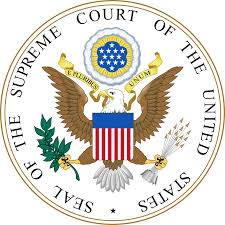
Prior to 2015, a response to a document request might read something like, “Company objects to the phrase ‘all computer data’ in Document Request No. 3 as vague and ambiguous. Without waiving this objection, Company will produce nonprivileged responsive documents at a mutually convenient time and location.” This response leaves the requesting party unsure about whether the objection was just careful, protective lawyering or whether the responding party was withholding some important category of computer data on the basis of the objection, and thus uncertain about whether to file a motion to compel. See Childers v. Rent-A-Car E., Inc., 2024 WL 1050501 (E.D. La. 2024). In 2015, Rule 34(b)(2)(C) was amended in an effort to reduce that uncertainty and allow the requesting party to make a more informed decision about whether to file a motion to compel.
In order to promote greater transparency, and thereby eliminate or reduce the number of meaningless discovery motions, the 2015 amendment added a requirement that a party responding to a document request with an objection also include a statement as to whether the party was withholding any documents on the basis of the objection. Presumably, a party understanding that its opponent had not withheld any documents on the basis of an objection might deem it not worth the cost to file a motion to compel, saving both parties money and saving time and docket congestion for the court. See Deakin v. Magellan Health, Inc., Inc., 340 F.R.D. 424 (D.N.M. 2022).
Responding parties are not required to produce a log of each document withheld on the basis of their objections. See Wolt v. Embankscape Equip., LLC, 2024 WL 1096563 (S.D. Tex. 2024). Rather, a responding party may satisfy this requirement by describing the categories of documents that it is searching for and producing and those categories that it is excluding from its efforts. For example, a party believing that a request should be limited to a particular time period satisfies its obligations under Rule 34(b)(2)(C) by interposing an objection that the request is over broad in its time scope and then stating that it is only producing responsive documents from a specified time period. Id.
The obligation to specify whether documents are being withheld is not generally dependent on the validity of the objection; even if the court agrees 100% that the request was objectionable, the response will nonetheless violate Rule 34(b)(2)(C) if it does not also include the statement about whether documents have been withheld based on the objection. See Childers v. Rent-A-Car E., Inc., 2024 WL 1050501 (E.D. La. 2024). An exception to this general rule, however, is that if a request is “facially objectionable”—i.e., is plainly objectionable based on its phrasing, without consideration of the claims and defenses in the case—then some courts do not require a statement about whether documents have been withheld. For example, a request for all emails that a party sent or received during a certain time period, with no requirement that the emails be relevant to the claims or defenses in the action, is facially objectionable. See Alsaadi v. Saulsbury Indus., Inc., 2024 WL 1617639 (D.N.M. 2024).
Along the same lines, in most circumstances, Rule 34(b)(2)(C) also provides that an objection that applies only to part of a request must specify that part and permit inspection of the rest. Most requests are not so entirely problematic that every aspect of the request is objectionable. Accordingly, in most instances, a proper response flags the objectionable aspects of the request, then permits inspection of a narrowed scope of responsive documents. Occasionally, though, a request is so problematic that it is difficult to discern an aspect of it that is not objectionable. In that case, some courts hold that a response interposing an objection and stating that no documents are being produced satisfies Rule 34(b)(2)(C)’s obligation to state whether documents are being withheld on the basis of the objection.
Rule 34(b)(2)(C)’s requirement that responding parties state whether documents are being withheld on the basis of their objections has also added fuel to the fire already smoldering concerning two common formulations in discovery responses. The first of these common constructions involves an objection followed by a response “subject to” or “without waiving” the objection. Many courts were already criticizing such responses and some were outlawing them per se. The primary criticism of this type of response was the lack of clarity about the scope of the response—what it means to produce responsive documents “subject to” an objection. The 2015 amendment to Rule 34(b)(2)(C) created another problem for such responses—they don’t disclose whether documents have been withheld on the basis of the objection. See Wolt v. Embankscape Equip., LLC, 2024 WL 1096563 (S.D. Tex. 2024).
The second of these common constructions involves general objections—those objections interposed at the beginning of the response that are then incorporated by reference into each individual response. As with “subject to” responses, general objections have come under increasing criticism for their lack of specificity or clarity. Courts find general objections particularly problematic when they object to the requests “to the extent” that they are overly broad, unduly burdensome, etc., etc. Such a response leaves the requesting party guessing which of the individual requests are purportedly overly broad or unduly burdensome and, for those that are deemed objectionable, which aspects have drawn the objection. Add to that list of problems the fact that such general objections fail to specify whether any documents have been withheld on the basis of the objections. See Smash Tech., LLC v. Smash Sols., LLC, 335 F.R.D. 438 (D. Utah 2020).
Of course, all of these problems can be avoided if you participate in the discovery process in good faith and with transparency. If your response clearly discloses the specific aspect of the request that you believe to be objectionable and the manner in which you are narrowing or focusing the scope of the request for purposes of your response, you are unlikely to get in trouble with the court.
******
Steve is one of the authors and editors of The Federal Litigator, a monthly publication from Thomson Reuters that reports on cases of general interest to those who practice in the federal courts. Most editions contain a “deep dive” into one issue, exploring four or five cases that tease out different nuances and applications of the doctrine under study. This article is borrowed from the editor’s note in the June 2024 edition of The Federal Litigator with permission from Thomson Reuters. To obtain the full edition of The Federal Litigator, please subscribe here. Individual case summaries can be accessed through Westlaw.



